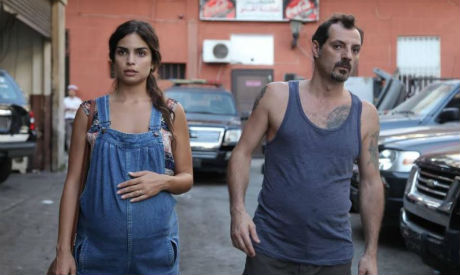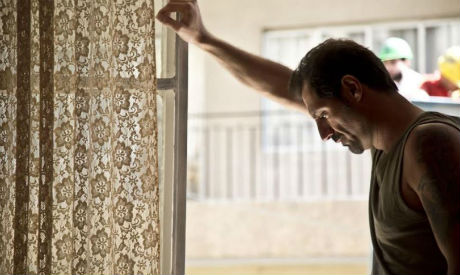Since his first feature film, West Beirut, in 1998, Lebanese cinematographer, film director and writer Ziad Doueiri has secured himself a place on the international cinema scene.
West Beirut (À l'abri les enfants), a comedy drama, won a total of eight awards at numerous prestigious international festivals, among them the François Chalais Award at the Cannes Film Festival (1998), the Best Film Award at the Carthage Film Festival (1998), and the International Critics' Award (FIPRESCI) at the Toronto International Film Festival (1998), where he was praised for his “youthful, energetic and unconventional approach to human values in the midst of civil war and its tragedies.”
His next feature, crime drama Lila Says (Lila dit ça, 2004) as well as The Attack (2012), have also brought him a few awards; the latter film causing controversy based on thematic choices and was banned in a number of Arab countries.
Doueiri comes to the inaugural El-Gouna Festival (22-29 September) with his latest film The Insult (2017), competing in the narrative film category.
The Insult won the Volpi Cup for Best Actor (Kamel El Basha) at this year’s Venice Film Festival.
It is also Lebanon’s submission for the Foreign Language Film Award at the Oscars next January.
Ahram Online met Doueiri during his short stay in El-Gouna, where the director was surprised with the Best Arab Talent of the Year Award from Variety, right before the Egyptian premiere of The Insult.

(Photo: still from Ziad Doueiri's film The Issult)
Ahram Online (AO): Your film The Insult won the Best Actor award in Venice only a few days before its participation in the official competition at the El-Gouna Film Festival. What motivated you to take part in the inaugural edition of this festival?
Ziad Doueiri (ZD): It is a great opportunity and honour to screen my film in Egypt and to join the Egyptian audience. I also trust the cause of the organisers of this festival, especially Intishal El-Timimi, the festival’s director. I hope the festival will grow in its coming editions.
AO: How would you describe The Insult?
ZD: The film deals with our deep wounds that we do not talk about since the end of the civil war in the 1990s. In less than two hours, The Insult sums up forty years of deliberate blindness. The story of this film is about a clash between a Palestinian and a Christian Lebanese in Beirut. When they go to the court the bitterness of the past haunts everyone.
In this sense, the film opens the question of the impossibility of building a healthy future unless you have a real reconciliation with the past.
AO: Your first feature, West Beirut, was about Beirut at the beginning of the civil war. Two decades later you decide to come back to Beirut to shoot The Insult. Why now?
ZD: When I and Joelle Touma wrote the script two years ago this question was not on our minds. We had a story to tell and we waited for two years to find a producer until the Lebanese producer Antoun Sehnaoui showed his interest.
It is thanks to the support of Sehnaoui that this film exists. Later on we had a little more funding from France, Belgium, and the USA in the different phases of film production.
I have to mention also the generous support of the Lebanese state which allowed members from the army, the police, and the riot police to be shown in some of the film sequences; they also provided us with locations and helicopters.
AO: And yet, despite such strong support of the state, earlier this month you were arrested at Beirut airport during your visit to the country. Why did this happen?
ZD: I was not arrested because of this film but because someone had a lawsuit accusing me of normalisation with and visiting Israel to shoot The Attack [several scenes of the film were shot in Tel Aviv, featuring Israeli actors]. I have no idea why this happened now; I have visited Lebanon over 30 times since the release of The Attack in 2013.
In the court the judge was very professional and I was treated with respect and dignity. Then I was released.
I believe there are a few individuals, and not the state per se, who do not want The Insult to be released in Lebanon.
Of course this whole situation is not easy for someone with my background and my work. But the Lebanese audience is smart and they were excited to watch my new film The Insult and engage in the conversation about the unspoken history of us, of Lebanon.
AO: What was the Lebanese audience’s reaction to The Insult?
ZD: Two weeks following its release in the Lebanon’s cinema theatres, The Insult is still number one in terms of viewership.

(Photo: still from Ziad Doueiri's film The Issult)
AO: Speaking more about The Attack, did you expect that the film would provoke such a big wave of anger, in which many Arab countries, including Lebanon, banned the film and as a result of which you were accused of being pro-normalisation of relations with Israel?
ZD: Not really, because the Lebanese state accepted the film’s distribution in Lebanon before a campaign calling for boycotting the film had even started.
There are many Palestinian directors who work with Israeli actors and with Israeli production houses; they are not attacked and they should not be attacked.
We all stand for the freedom of artists.
All I did was take my camera to Nablus, Gaza, Jerusalem and Tel Aviv because these are the locations of my film. The participation of Israeli actors was a matter of language. I cannot imagine Youssef Chahine producing “Alexandria... Why?” in New York with French actors.
AO: And what is your stance regarding the core accusation?
ZD: I need to say also that I am not pro-normalisation. Normalisation is an act of a state not an individual.
I grew up in the middle of the civil war; my parents were members of the Al-Mourabitoun Nasserite party. I learned the Palestinian cause at my mother’s breast.
Three members of my family were martyred fighting in the Fatah movement. I moved to the USA several years ago, then I moved to France. But my childhood and adolescence are still part of me and of who I am.
AO: Following the controversy around The Attack, did you find it difficult to convince the Lebanese and Palestinian actors to take part in The Insult?
ZD: Absolutely not. Kamal El Basha, the Palestinian actor, loved the script and it led him to win the best actor award at the Venice International Film Festival.
All the other actors also agreed to take part the moment they read the script, although there were some pressures on them not to take part in my movies. A successful artist likes to work with a successful artist; this was the case of The Insult.
AO: It is apparent that in all your films you do not impose an attitude but rather create a debate; you explore the different sides of the issue rather than taking a side. Is this a deliberate choice?
ZD: I have an attitude and it is very clear in all my films. But this does not mean I make movies with the intention to liberate Palestine or to promote the tragedy of the Christian Lebanese. My target is to make a film and I do all it takes to make it: the character, the plot, the transformation of the character, and so on.
On the other hand, I was born in a poor and militant family, not on board a yacht in Los Angeles or Paris. So it is normal to tell my own story. West Beirut is the story of my family in Beirut from 1975 to 1983.
The Insult is about my views and ideas about the tangled relationships in Lebanese society since the end of the civil war and up to this day. So it is also my story.
I am very concerned with the truth, and with justice. When you know the viewpoint of the other you give him the right to defend himself and his cause. I belong to a family of lawyers and judges, including my 80-year-old mother who is a lawyer. The legal profession might always be a good option for me if I fail as a filmmaker [laughs].
AO: How would you evaluate Lebanese cinema?
ZD: Cinema in the Arab world is facing two main obstacles: censorship and the lack of funding.
Arab states should support the film industry, and in addition, art cannot be subjected to censorship.
Freedom of Arab men and women should be a priority if we wish to have a healthy society and daring artists.
My ambition and hope is that Arab cinema is recognised on the international scene. I believe that Arab filmmakers will continue making their films despite all the challenges, that they will do it with consistency and without fear.
For more arts and culture news and updates, follow Ahram Online Arts and Culture on Twitter at @AhramOnlineArts and on Facebook at Ahram Online: Arts & Culture
Short link: